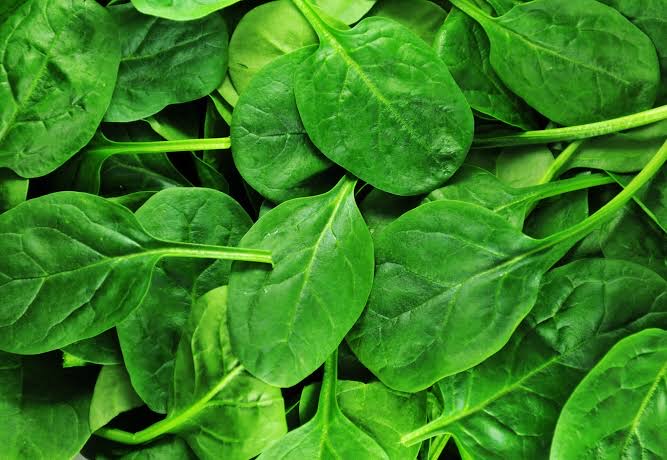
Why is Spinach considered a super-food?
Spinach is loaded with tonnes of nutrients in a low-calorie package. It is a great source of potassium (yes, better than bananas), calcium, iron, magnesium, vitamin A, folate, phosphorous, thiamine, vitamin K, as well as dietary fibre. Spinach is also one of the best sources of dietary magnesium, which is necessary for energy metabolism, maintaining muscle and nerve function, heart rhythm, a healthy immune system and maintaining blood pressure. Magnesium also plays a part in hundreds more biochemical reactions that occur in the body.
Here are some of the amazing Benefits of Spinach!
Diabetes – it is said to improve blood glucose control in diabetics, as it contains the antioxidant known as alpha-lipoic acid, which has been shown to lower glucose levels, increase insulin sensitivity and prevent oxidative stress-induced changes in patients with diabetes.
Cancer prevention – Spinach and other green vegetables contain chlorophyll which has shown to be effective at blocking the carcinogenic effects of heterocyclic amines which are generated when grilling foods at a high temperature.
Asthma prevention – The risks of developing asthma are lower in people who consume a high amount of certain nutrients. One of these nutrients is beta-carotene, of which spinach is an excellent source. Apricots, broccoli, cantaloupe, pumpkin and carrots are also rich sources of beta-carotene.
Lowering blood pressure – because of its high potassium content, spinach is recommended to those with high blood pressure to negate the effects of sodium in the body. A low potassium intake may be just as big of a risk factor for developing high blood pressure as a high sodium intake.
Bone health – Low intakes of vitamin K have been associated with a higher risk for bone fracture. Adequate vitamin K consumption is important for good health, as it acts as a modifier of bone matrix proteins, improves calcium absorption and may reduce urinary excretion of calcium.
Promotes regularity – Spinach is high in fibre and water content, both of which help to prevent constipation and promote a healthy digestive tract.
Healthy skin and hair – Spinach is high in vitamin A, which is necessary for sebum production to keep hair moisturized. Vitamin A is also necessary for the growth of all bodily tissues, including skin and hair. Spinach and other leafy greens high in vitamin C are imperative for the building and maintenance of collagen, which provides structure to skin and hair. Iron deficiency is a common cause of hair loss, which can be prevented by an adequate intake of iron-rich foods, like spinach.
Incorporating Spinach into your diet
Spinach is so versatile and so easy to sneak into everything!!! Here are some of the ways I sneak spinach into my life.
- Smoothies – check our Heidi’s Green Goodness Smoothie | AcuHealth (acuhealthacupuncture.com.au)
- Hommus – when I make homemade hommus, I divide it into 2 equal parts add spinach to one and blitz.
- Spaghetti Bolognese or Lasange, is so easy to hide from the kids.
- Salads – the obvious choice
- Scrambled eggs
- Pizza – yes, pizza, I put it on the bottom and add extra ingredients on top, no one knows…..
- Pesto Pasta – I blitz the spinach, basil and any other green leafy I have in the fridge with olive oil, lemon juice, garlic and some pine or cashew nuts and use it as a sauce for pasta!
- Rissoles – I blitz a heap of veggies together along with the spinach and add to my meat, roll and bake in the oven.
- Quiche
The list really does go on…..

Recent Comments